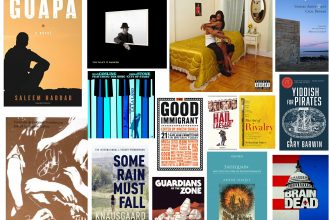I have discovered that my car is a sacred space: all the in-between mandatory conversations I need to have with myself cloaked in the midst of music, traffic and idle stalkers on the road. I’ve always loved driving. The hellish traffic of Lahore; the familiar streets and the perfunctory juice-wala’s at chowks are a constant source of pithy inspiration, idly composed tweets and wry smiles. Driving allows me sanctimonious security shrouded in the illusion of momentum. Even if I’m only moving forward in a circle that always leads back to the same place. I find that I do some of my best thinking while dodging motorcyclists and navigating traffic, listening to Rafi and stopping for nimboo-naaryal at Hussain Chowk. It is why I love this city – when the weather is right; the traffic optimally erratic and the playlist particularly profound, one is able to tap into a personal frequency that is never accessible amid the complacency of home. Of to-do lists, to-go places, to-meet people and to-eat foods. It’s a composite of colour and alive-ness that cannot really be captured in words properly, so I will stop trying. But it is there. And it is sacred.
A new space I am discovering is the classroom. I find myself trying to empathize and emphasize with and for my students in equal measure. To make them have fun but not too much fun. To make them ask questions but not too many questions. To teach them what I feel they ought to know and to resist teaching them what “I know†instead. It’s self-deprecation meets self-actualization. But I know I am enjoying it more than I ever enjoyed anything else. I crave the adrenaline of entering a room full of people every day and not knowing for a split-second before I open the door if my voice will fail me. I love the sheer starburst of relief and ideas that follows when it doesn’t. There is a word in Japanese, Ikigai, that the people of the island Okinawa derived to mean “a reason to get up in the morningâ€. I understand it a little now. This is not to say that I feel teaching is my calling or something. So far, I’m not sure I am any good at it and a part of me will always seek a self soaked in words. But it is, so far, my best use of words.
Perhaps I am one of those cobblers that the French call bricoleur du dimanche, an ingénue with an undiscovered calling who starts building always without clear plans, always adding bits on the fly.
A flight risk, with a purpose that can only be sustained when there is a pitfall in sight.
A glitch with a chip on her shoulder but a smile on her face.
A cobbler, whittling together the prefect pair of shoes, improvising madly each time the heel collapses and she finds herself stumble.
Maria Amir is Features Editor for the magazine.




